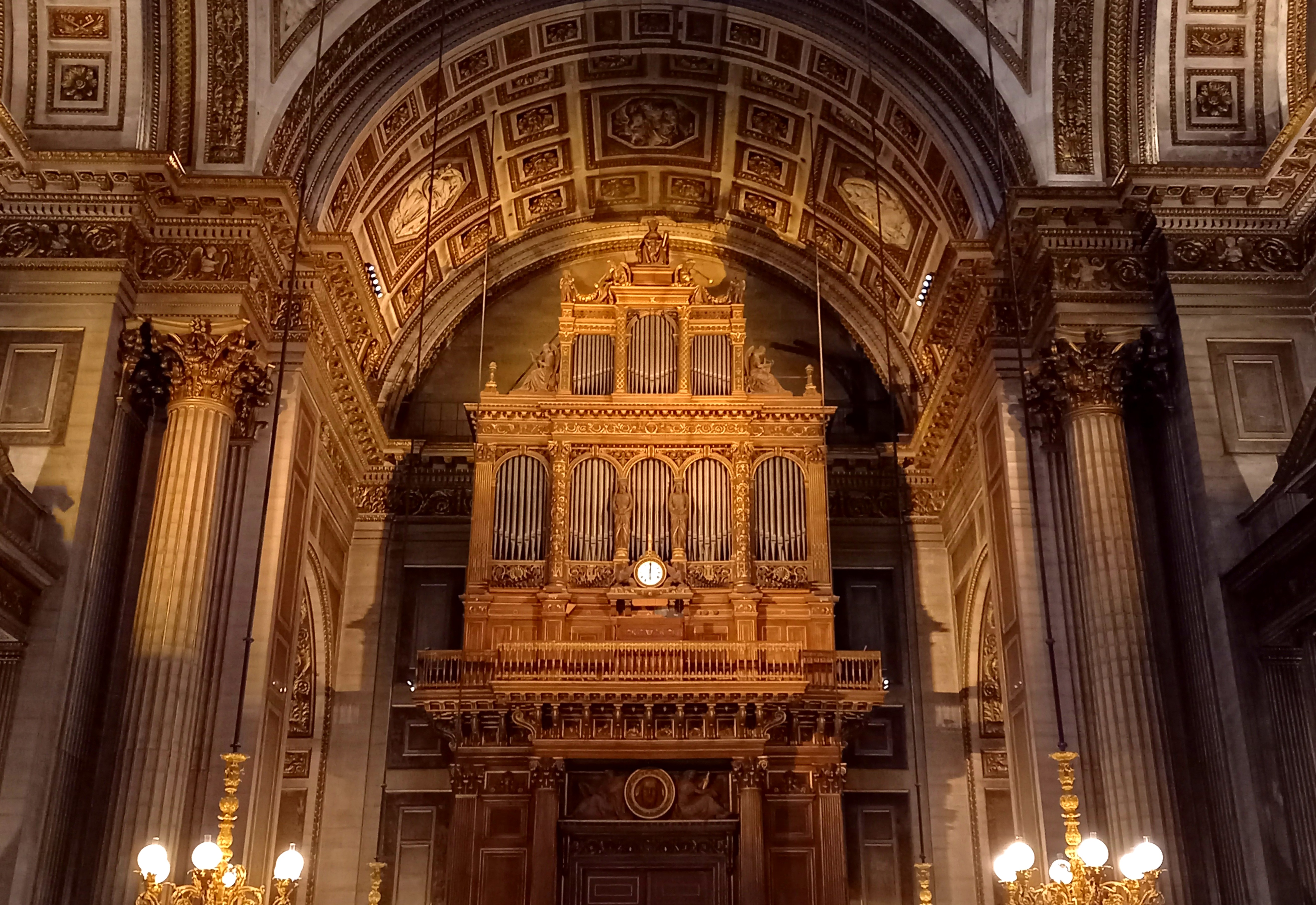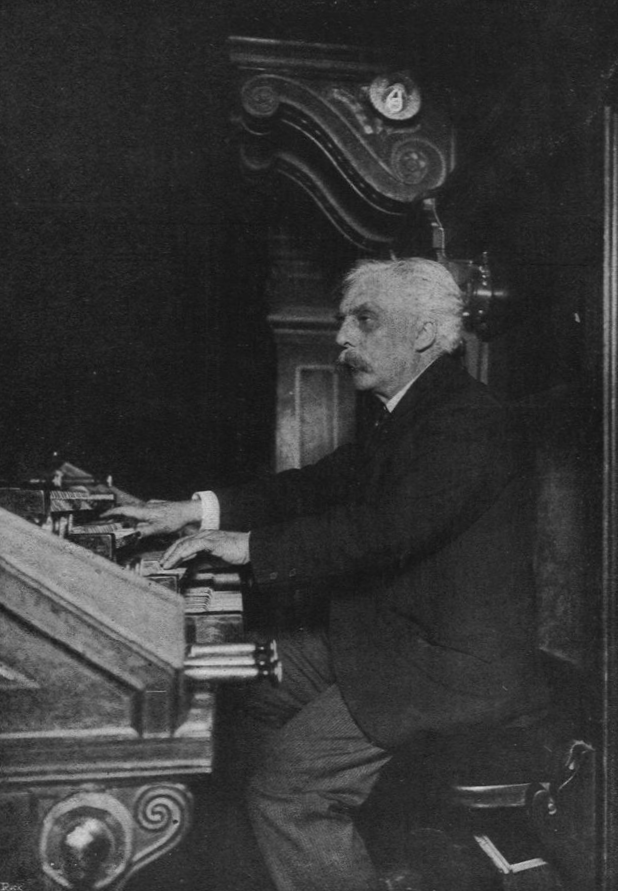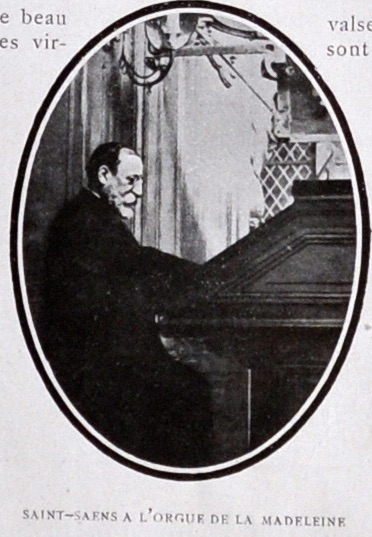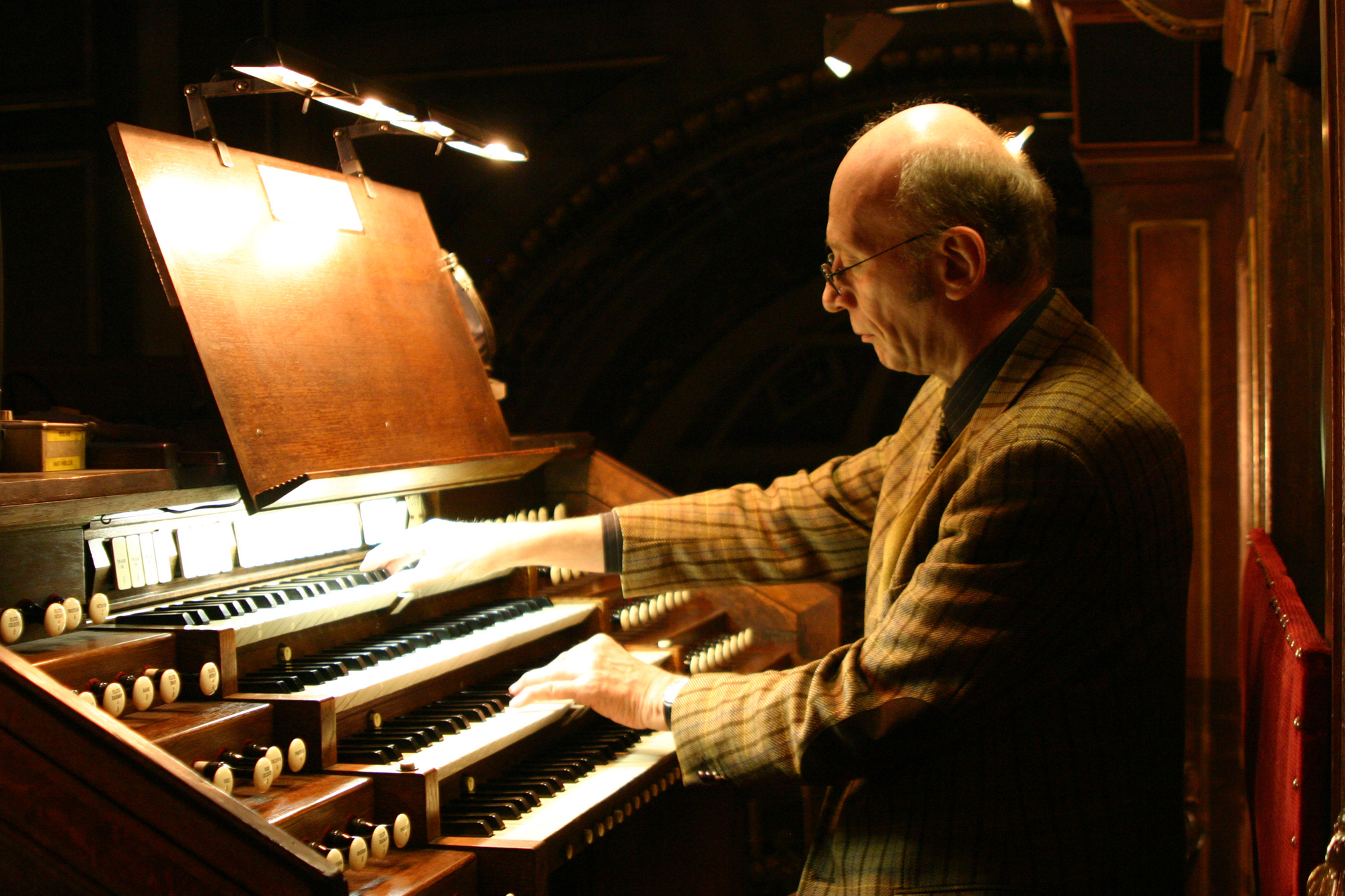Paris, Èglise de la Sainte-Madeleine
| Builder | A. Cavaille-Coll |
|---|---|
| Year | 1846 |
| Period/Style | Romantic |
| Stops | 62 |
| Keyboards | 4+P |
| Keyaction | tracker/mechanical |
| Tuning | Equal at 440 Hz |
| Sampleset |
Available
 , sampled by
Pipeloops
, sampled by
Pipeloops
|
The organ of *Église de la Sainte-Marie-Madeleine* in Paris is one of the most iconic instruments in France, originally built between 1846 and 1847 by Aristide Cavaillé-Coll. Housed in a Renaissance-style case designed by architect Jean-Jacques Huvé and featuring gilded carvings and sculptures, the organ marked a turning point in Cavaillé-Coll’s career. Unlike his earlier more classical instrument at Saint-Denis, the Madeleine organ embraced a modern orchestral style. It emphasized tonal blending, expanded 8' foundations, bold reed choruses, and mechanical innovations like octave couplers and a general crescendo. Notably, it originally lacked a Cornet, a traditional hallmark of French classical organs.
The organ evolved significantly over time. A major overhaul was carried out in 1927 by Charles Mutin, with subsequent changes in 1956–57 and 1971 by Roethinger/Boisseau and Danion-Gonzalez, including the addition of neo-classical stops and electrification of the action. A general restoration by Bernard Dargassies in 1988 preserved and stabilized the instrument. Despite its changes, the organ retains its Cavaillé-Coll character and continues to serve as a prominent liturgical and concert instrument.
The organist history of La Madeleine is equally prestigious. Camille Saint-Saëns served as titular organist from 1857 and brought a new level of seriousness to the post. He was succeeded by Théodore Dubois, then Gabriel Fauré, and later Henri Dallier and Edouard Mignan. Jeanne Demessieux’s tenure (1962–1968) stands out for her virtuosic playing and recorded legacy. Since 1979, François-Henri Houbart has served as titular organist. Supplementary organists have included great names like Charles-Marie Widor, Eugène Gigout, and Nadia Boulanger, all of whom contributed to the rich musical heritage of this legendary instrument.
The organ evolved significantly over time. A major overhaul was carried out in 1927 by Charles Mutin, with subsequent changes in 1956–57 and 1971 by Roethinger/Boisseau and Danion-Gonzalez, including the addition of neo-classical stops and electrification of the action. A general restoration by Bernard Dargassies in 1988 preserved and stabilized the instrument. Despite its changes, the organ retains its Cavaillé-Coll character and continues to serve as a prominent liturgical and concert instrument.
The organist history of La Madeleine is equally prestigious. Camille Saint-Saëns served as titular organist from 1857 and brought a new level of seriousness to the post. He was succeeded by Théodore Dubois, then Gabriel Fauré, and later Henri Dallier and Edouard Mignan. Jeanne Demessieux’s tenure (1962–1968) stands out for her virtuosic playing and recorded legacy. Since 1979, François-Henri Houbart has served as titular organist. Supplementary organists have included great names like Charles-Marie Widor, Eugène Gigout, and Nadia Boulanger, all of whom contributed to the rich musical heritage of this legendary instrument.
| Grand Orgue | Positif | Bombarde | Récit expressif | Pédale |
|---|---|---|---|---|
| Montre 16' | Montre 8' | Soubasse 16' | Flûte harmonique 8' | Quitaton 32' |
| Gambe 16' | Flûte douce 8' | Basse 8' | Flûte céleste 8' | Contrebasse 16' |
| Montre 8' | Viole 8' | Flûte harmonique 8' | Prestant 4' | Flûte 8' |
| Flûte harmonique 8' | Voix céleste II 8' | Flûte traversière 8' | Flûte octaviante 4' | Violoncelle 8' |
| Bourdon 8' | Prestant 4' | Flûte octaviante 4' | Octavin 2' | Flûte 4' |
| Salicional 8' | Dulciane 4' | Octavin 2' | Larigot 11/3' | Bombarde 16' |
| Prestant 4' | Octavin 2' | Cornet III | Plein Jeu IV | Basson 16' |
| Quinte 22/3' | Trompette 8' | Fourniture IV | Cymbale IV | Trompette 8' |
| Doublette 2' | Musette 8' | Bombarde 16' | Bombarde 16' | Clairon 4' |
| Piccolo 1' | Clairon 4' | Trompette 8' | Trompette 8' | |
| Cornet V | Trompette en Chamade 16' | Clairon 4' | Hautbois 8' | |
| Fourniture V | Trompette en Chamade 8' | Voix humaine 8' | ||
| Cymbale V | Clairon en Chamade 8' | Clairon 4' | ||
| Trompette 8' | Clairon en Chamade 4' | |||
| Cor anglais 8' |
https://www.pipeloops.com//product_info.php?cPath=24&products_id=29&language=en
https://organindex.de/index.php?title=Paris,_La_Madeleine_(Hauptorgel)
https://fr.wikipedia.org/wiki/Grand_orgue_de_l%27%C3%A9glise_de_la_Madeleine
https://organindex.de/index.php?title=Paris,_La_Madeleine_(Hauptorgel)
https://fr.wikipedia.org/wiki/Grand_orgue_de_l%27%C3%A9glise_de_la_Madeleine
 Pipe Organ Map
Pipe Organ Map




